Big Picture Research Concerns
I’m interested in understanding better the roles of government, business and the not-for-profit sector in shaping consumption practices, and the effectiveness of various mechanisms for influencing behavior at both the organizational and individual levels.
My research is irregular, in fits and starts, but always with the purpose of guiding my resources into engagements that have traction — engagements that materially further positive change in how we relate with the natural environment, living creatures, and humanity.
My hope is that we might understand ourselves to be inseparable parts of a larger whole, and live responsibly, and joyously, out of that understanding.
The Basic Questions
The Culture of Repair Project is informed by asking questions at the local, national and international levels. The out-of-the-gate questions are:
Where does repair fit into our lives?
Or does it?
And why?
Exploring the range — from macro systemic forces to community and individual particulars — federal to local government, big business, small business, international NGO's, national to local non-profits...
What's going on here?
Whose interests are at stake and how do they relate?
How much does repair matter?
Examining economics, business management, philosophy, politics, psychology, religion, anthropology, with the questions:
Why don't we repair?
What are people across the country and around the world doing about it?
Big Picture Research Concerns of Particular Interest
• The impact of ethics, values, education, public programming, religion, and the arts on business practices, and on individuals' actions. The scale and mechanisms of that impact. How do those compare with, for example, convenience, low-price, and the power of marketing to create and drive consumer demand?
• The obstacles inherent in capitalism to cultivating a culture of repair, capitalism as currently practiced, as well as in broader, less historically situated terms (e.g., circular economy / regenerative capitalism).
• Pricing commonly held resources used by business to more closely reflect their real value to the commons.
• The roles played by neurology, biochemistry, and psychology are greater than generally recognized. Repeated hits of novelty-induced dopamine, on the one hand, or of existential-threat-induced cortisol, on the other, go far in biochemically shaping resilient paradigms, with their resultant values. What is the relevance of this physiological reality for business, government and civil society in cultivating a culture of repair?
